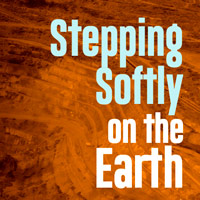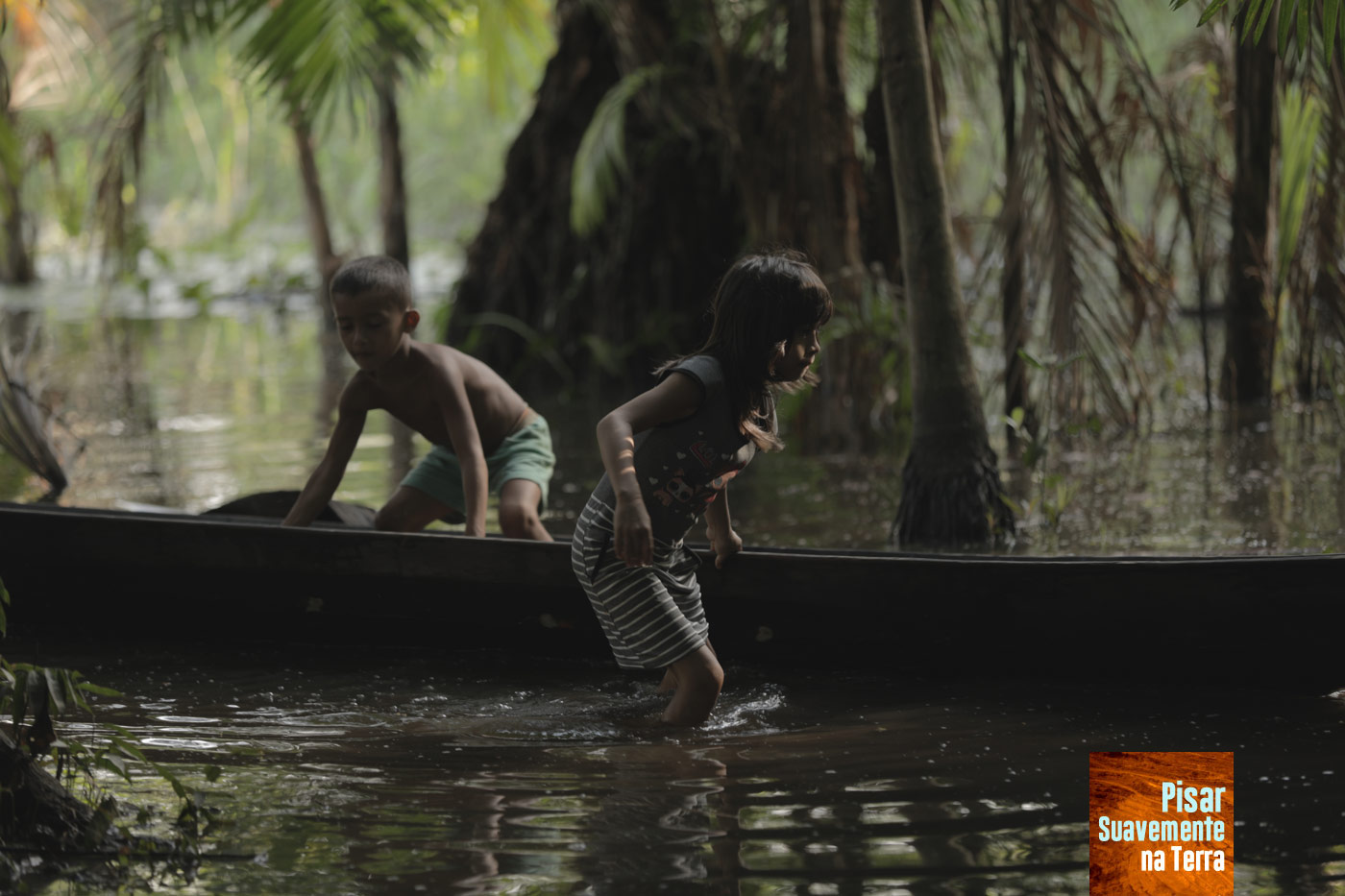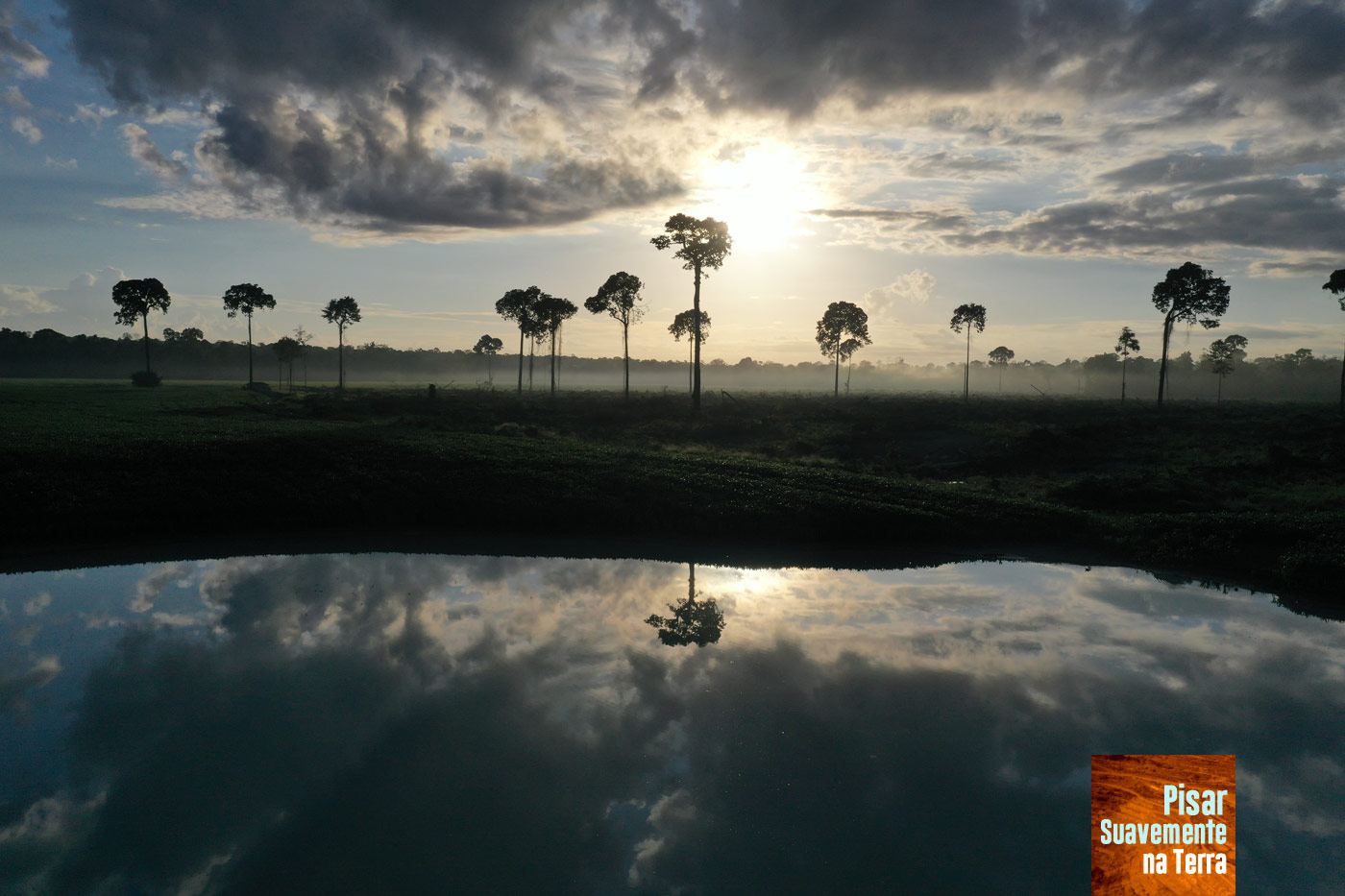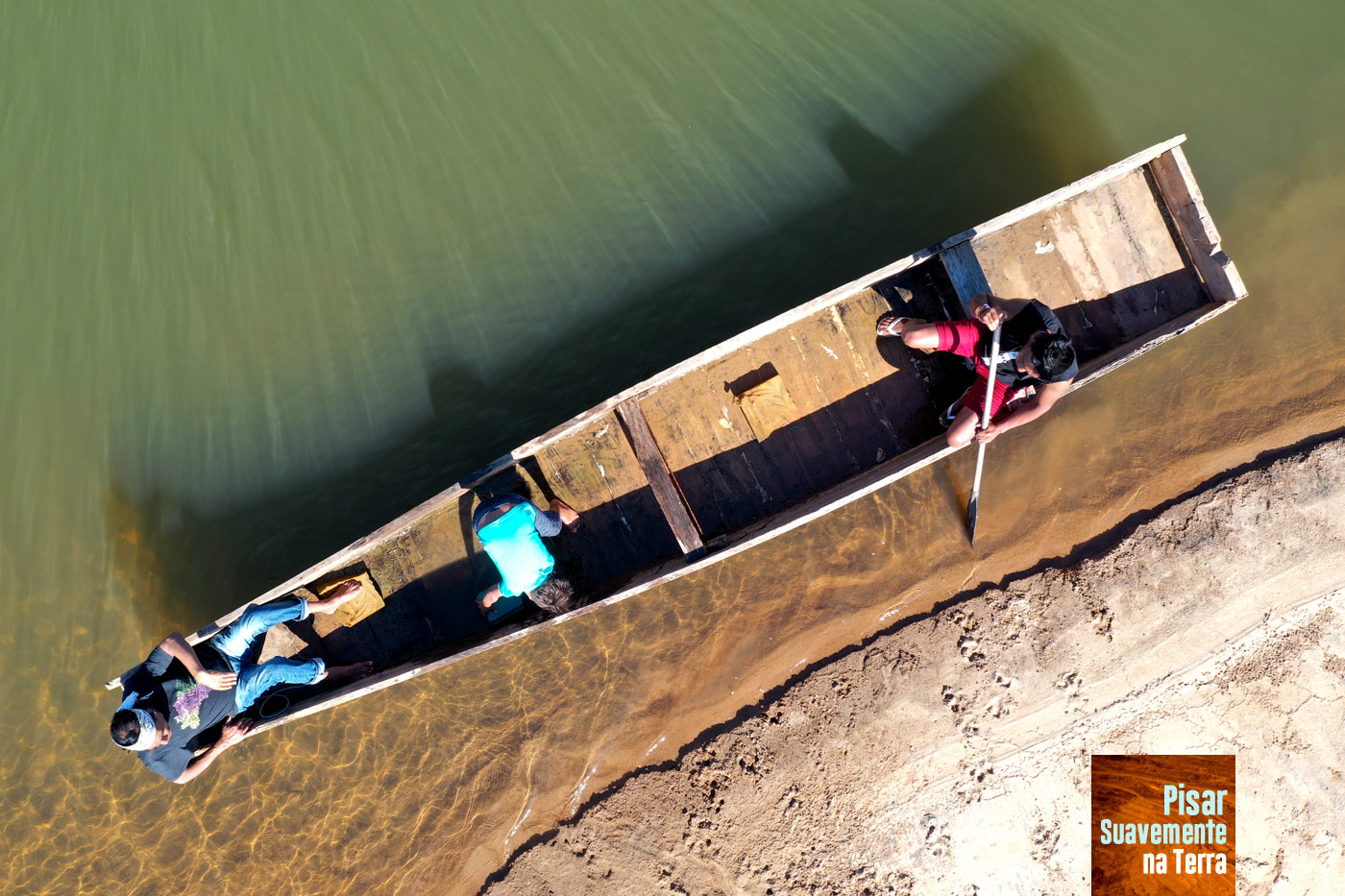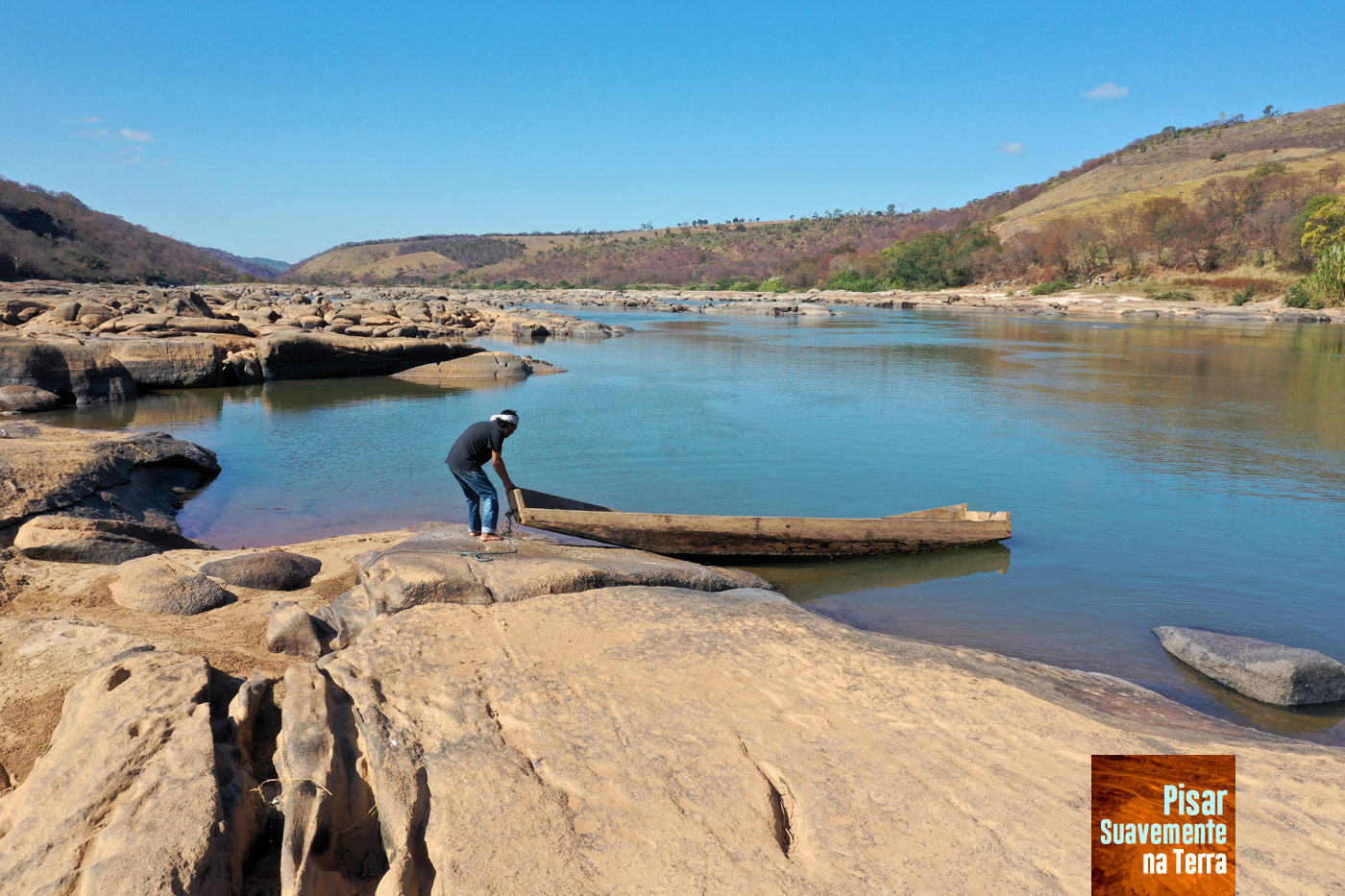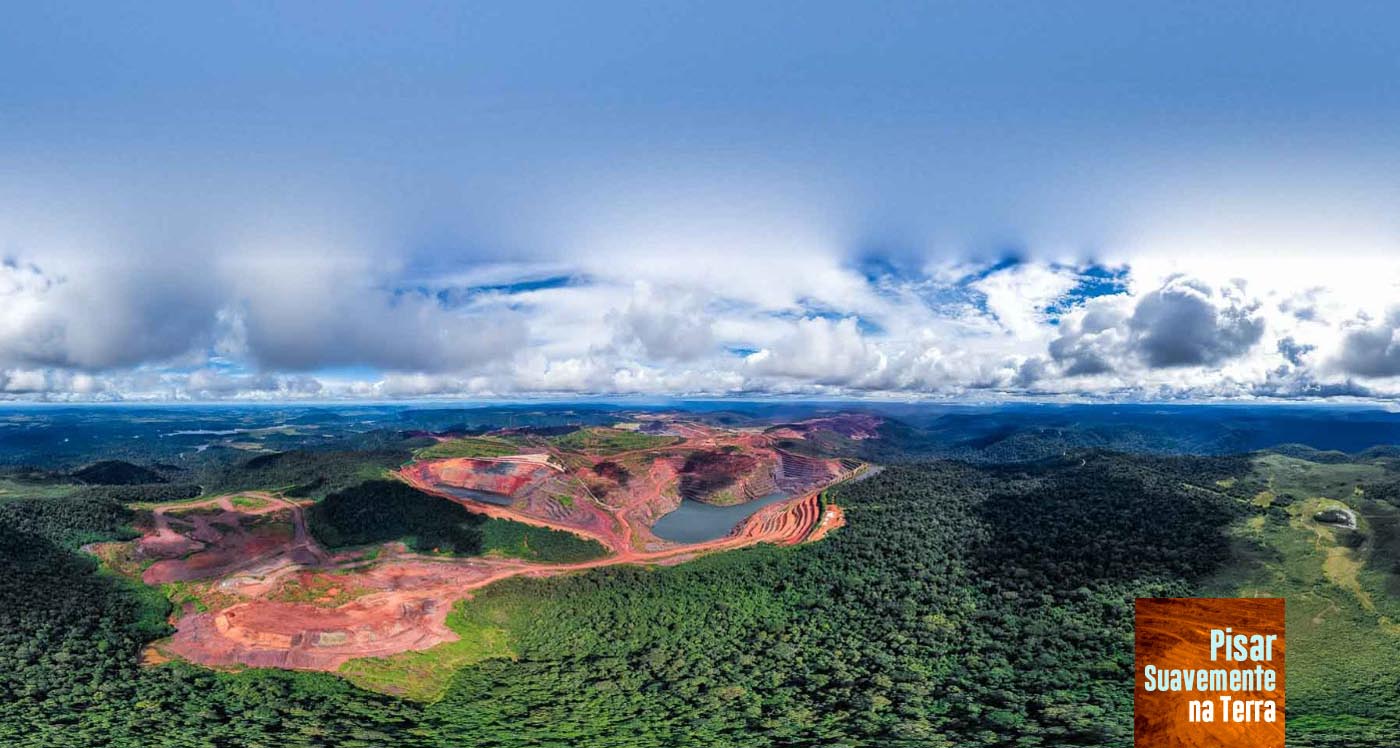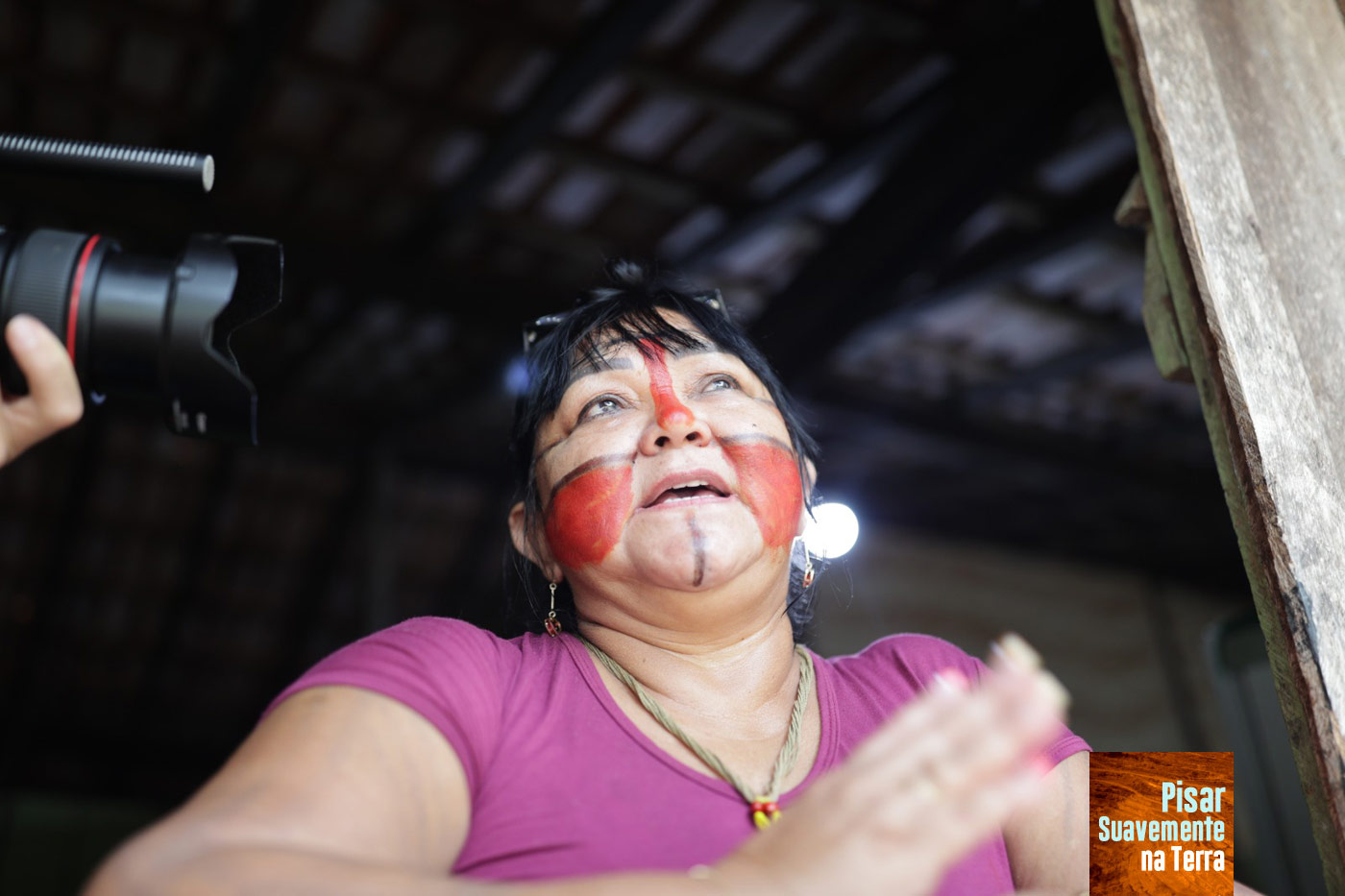Stepping
Softly
on the Earth
Première October 2022
A movie by Marcos Colón
Directed & Produced Marcos Colón
Screenplay: Marcos Colón & Bruno Malheiro
Photography: Bruno Erlan & Marcos Colón
Editing & Original Score: Diego Orix
Graphic Design & WebDesign: Fabrício Vinhas
Executive Producer: Erik Jennings & Marcos Colón
Production: Amazônia Latitude Films
Sound Editing & Mixing: Ricardo Bento
Colorization: Lupércio Bogéa
Filmed in Brazil, Peru and Colombia
73 min | USA | 2022
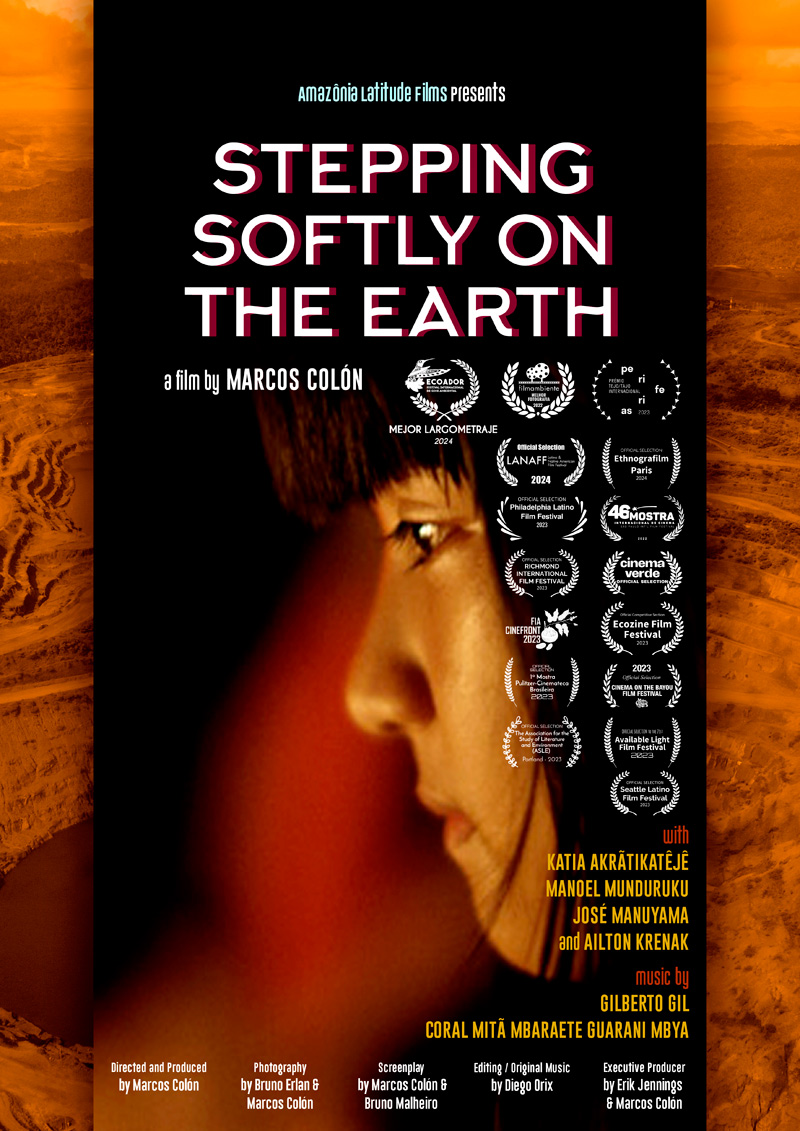
The Film
In the documentary “Pisar Suavemente na Terra”, three Indigenous leaders from the Amazon try to keep their ways of being in the world alive. This is the story of Kátia, chief of the Akrãtikatêjê people, of Manoel, chief of the Munduruku people and of José Manuyama, a teacher of Kukama origin. The three narrate the threats to their territories promoted by large-scale mining, monoculture, oil extraction, logging and the construction of hydroelectric plants. Interconnected by the voice and ancestral thoughts of Ailton Krenak, these accounts of resistance present us with other ways of existing and walking in the world.
Participations
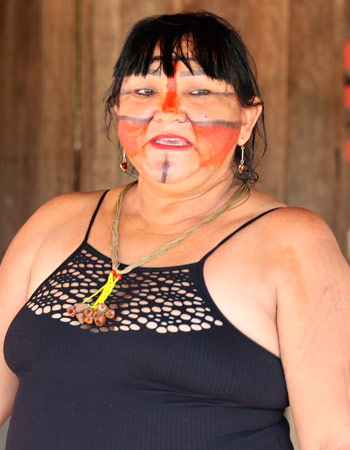
Kátia Akrãtikatêjê
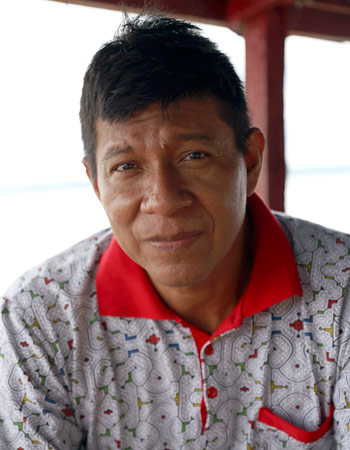
José Manuyama
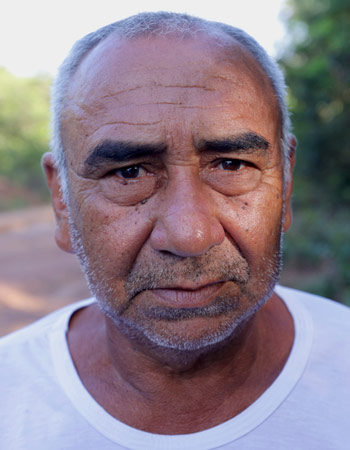
Manoel Munduruku
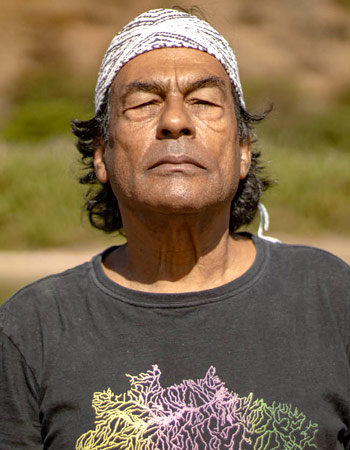
Ailton Krenak

We didn't come into the world to eat the world.
We came to dance to life.
Ailton Krenak

Modernity is synonymous with social ruin… development produces material wealth for a few and total ruin for the rest.
José Manuyama

We indigenous people are here telling you to respect us the way we are.
Kátia Akrãtikatêjê

These great enterprises only bring us destruction. This is the development they talk about: development that kills.
Manoel Munduruku
Clipping
Documentary Highlights in the Media.
BOINGBOING.NET
Stepping Softly on the Earth and Beyond Fordlandia, two documentaries by Marcos Colón
MONGABAY.COM
Documentário mostra a luta de lideranças indígenas para proteger a Floresta Amazônica - 8 Julho 2022
FOLHA DE S. PAULO
REDE BRASIL ATUAL
How to 'Tread' on the devastated land and explore solutions for the Amazon (redebrasilatual.com.br)
CONEXÃO PLANETA
Documentary points paths to the future of the Amazon (conexaoplaneta.com.br)
REVISTA CULT
Stepping gently on the earth: a report - Revista Cult (uol.com.br)
AMAZÔNIA.ORG
LATIN AMERICA BUREAU
Stepping softly on the earth | Latin America Bureau (lab.org.uk)
REVISTA AMAZÔNIA LATITUDE
REVISTA AMAZÔNIA LATITUDE
REVISTA AMAZÔNIA LATITUDE
Stepping Softly on the Earth: The water man – 21/10/2022 – (amazonialatitude.com)
REVISTA AMAZÔNIA LATITUDE
REVISTA AMAZÔNIA LATITUDE
The Future is Ancient: How to Step Gently on the Earth – 30/07/2022 – (amazonialatitude.com)
CONEXÃO PLANETA
AMAZÔNIA REAL
REDE BRASIL ATUAL
AGÊNCIA ENVOLVERDE JORNALISMO
LATIN AMERICA BUREAU
Brazil: tread gently on the earth | Latin America Bureau – 22/11/2022 – (lab.org.uk)
INSIDE CLIMATE NEWS
